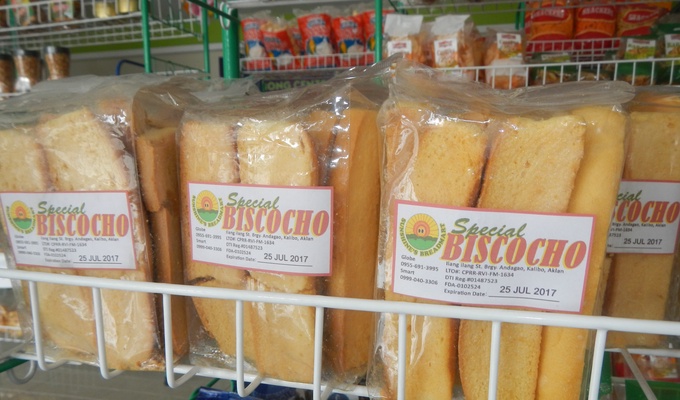Biscocho refers to several different cookies and breads worldwide.
- In the Philippines, biscocho or biskotso refers to twice-baked breads, usually coated with butter and sugar, or garlic. They are associated with the province of Iloilo but are found nationwide. This variety is also known as biscocho duro, machacao, or matsakaw.
- In the Sephardic Jewish tradition, biscochos, also known as biscochos de huevo, or biscotios, are a traditional ring-shaped cookie commonly prepared for Hanukkah, Purim, and other Jewish holidays.
- In Uruguay, bizcocho can refer to a croissant.
- In Argentina, bizcocho refers to a kind of salty cookie.
- In some regions of Mexico, bizcocho can refer to the corn cookie elsewhere called coricos.
- In general Spanish usage bizcocho can also refer to sponge cake.
